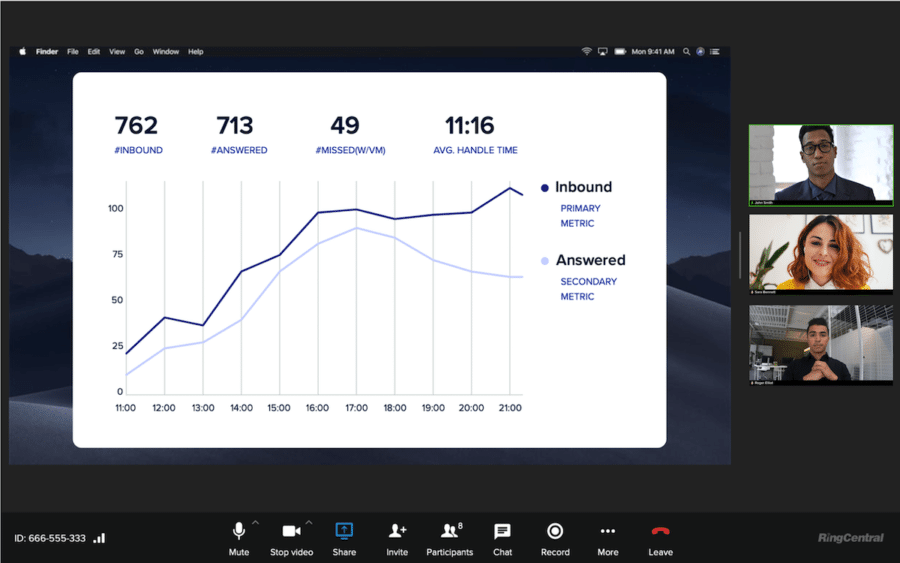When you picture a startup, what do you see?
A vibrant, colorful open-plan office?
Quirky office perks like ping pong tables, foosball, and maybe office dogs running around?
Or maybe you see a small, dingy office basement, with one or two people “hacking” away at trying to make their idea a reality in the wee hours of the night.
The thing is, these are both realities of starting up a business—and they are only two of the many, many scenarios out there when it comes to growing a startup. Whether the aim is to grow through angel investors or grit your teeth and make it on your own terms, success comes in a variety of different forms for a startup.
The point at which a startup stops being called a startup
So, how do you tell when your startup is ready to take the next leap and become a fully fledged, more mature business?
Let’s start with one metric that you should not consider (even though many people still use it out of habit): time.
You’re probably no stranger to the many oft-quoted statistics about startups failing in their first year (and second year, and third year…)—and in fact, the vast majority of startups don’t make it.
In the startup life, time is often skewed. Some startups luck out and experience massive success seemingly overnight—and not even because of anything they’re doing either. Sometimes, unpredictable changes in the world completely flip the script on us and give certain businesses a giant boost (while making others obsolete).
And then there are many startups that have been around for years and years, while still maintaining a startup size and mindset.
So, in our humble opinion, using time and age to gauge whether your startup is still a startup is out.
Other folks have very precise numbers for revenue and growth that they use to gauge whether a business is still a “startup.”
Again, this can still be quite narrow. What if your “number” for startup growth is 1,500%? If a three-person business is growing at 1,350%, does that mean they don’t meet the criteria for a startup? And if a 500-person company is doing 1,500% growth, does that make them a startup?
If you’ve been operating for less than three years but have hundreds or even thousands of employees, does that break the criteria of you being considered a startup?
See how Theta Lake, a compliance startup, went from super-lean to super-growth
Who’s asking?
Let’s get one thing straight: if you start turning your potential into real profits consistently quarter after quarter, then congratulations, you’re most likely on your way to something that is a viable business.
For us then, the real question is why you need to know whether your business is still a startup.
If you need to know for investment purposes, for instance, and you just need hard numbers to prove your business is (or is no longer) a startup, then sure, using one of the above methods and relying on growth / revenue / headcount numbers is fine.
If you’re talking to a friend or networking, on the other hand, and they’re asking you if your business is a startup, then that’s a different matter. Does your team have an agile startup mindset? Do you pivot quickly and adapt to your business landscape? How big (or small) is your team? All of these questions might factor into your answer—and sure, it could get a little complicated.
But who says you have to say “yes” or “no” to the question of “Is your business a startup / Do you work for a startup?”
Why can’t you say, “Technically yes, because [XYZ], but we’ve also been growing and maturing, so perhaps next year we’ll no longer be a startup”?
There are so many nuances in that question.
What are the 4 key components of a successful startup?
The transition from startup to no-longer-a-startup
One of the main signs to look for if you’re wondering about your startup status is, of course, headcount.
Need to accommodate an ever-expanding workforce? And with growth—especially significant and fast growth—you should be preparing for a deeper change in the fundamental way your business operates.
Whether you have to look at expanding the way your growing team communicates, or needing to move to a distributed or hybrid working model, you’ll find that the business naturally leans toward becoming more structured. (And dare we say, more “corporate?)
It’s just the part of the evolution of a startup.
Now, we’re not saying that the athleisure-wear will be replaced with suits, but in order for a maturing startup to function as efficiently as it possibly can, certain business processes and structure just need to be in place.
For example, having certain work policies in place, whether that’s a WFH policy or performance review policy.
Or having everyone on the team using the same tools instead of one person using a to-do list tool while their project manager is using a kanban board style project management app to keep track of everything.
And it makes for a better customer experience too. If your sales team is using one conference call service and messaging app, but your customer support and marketing teams are all using different tools, it makes it less efficient for not only them to talk to each other, but for anyone who’s customer-facing too.
That’s exactly why we designed our app to encompass every communication channel a startup would need in one place: messaging, video calls, phone, and more.
Startups need to screen share? It has that too:

Your team is always on the go, and need to be able to take calls from both their phones and computers? The RingCentral app lets you switch between devices without interrupting the call:

🕹️ Get a hands-on look at how fast-growing startups are using RingCentral by booking a product tour:
💰 You can also use this calculator to see roughly how much your business could save by using RingCentral to support your team’s communication with each other, clients, freelancers, and more.
In the end, what does it mean to be a “startup” anyway?
In our humble opinion…
Yes, sometimes it’s important to consider company size, revenue, growth, and so on when deciding whether or not to slap the “startup” label on a business.
But in most cases, we look at startups as an idealized way of doing business—something to aspire to. A culture and mindset of not just making money and hockey stick growth, but more importantly, creating something new that can impact our lives in a positive way. While throwing out the old rulebook, of course.
We quite like the sound of having more businesses like that.
When do you think a business is no longer considered a “startup”?
Updated Mar 13, 2025












